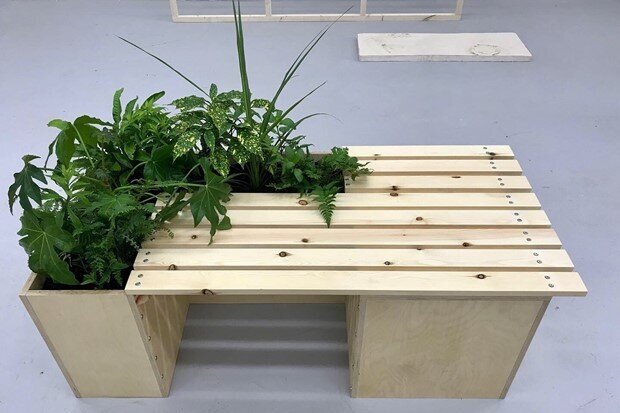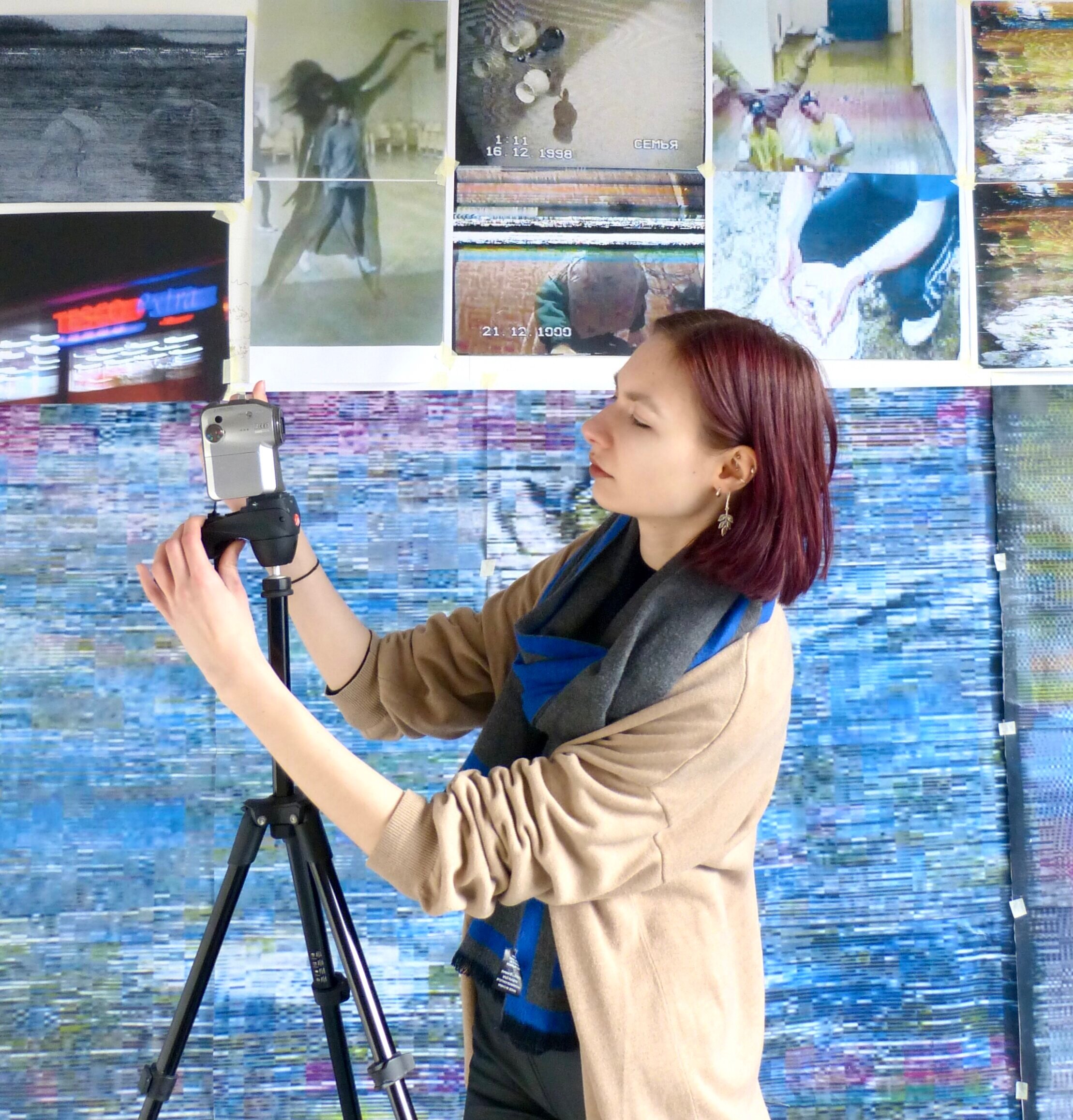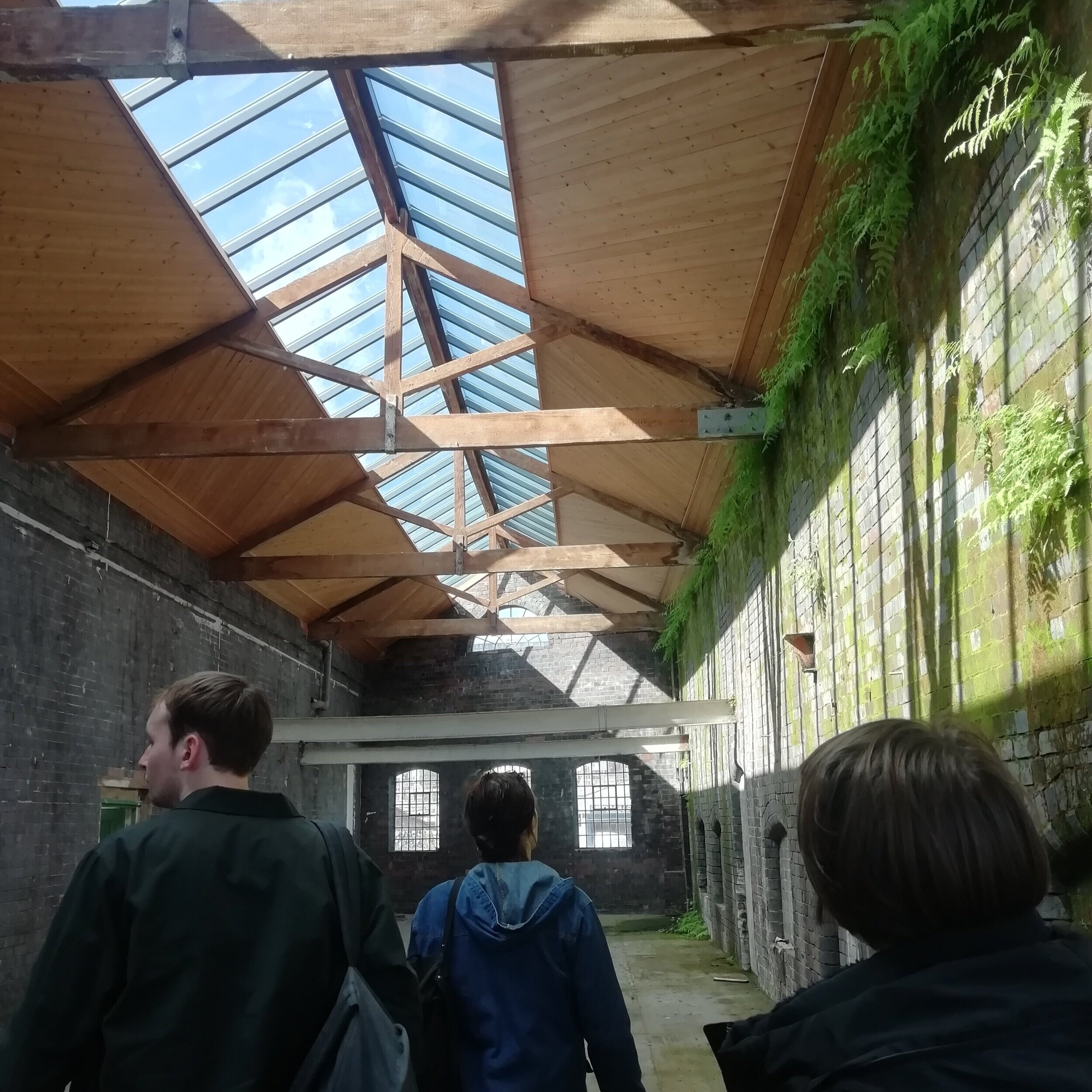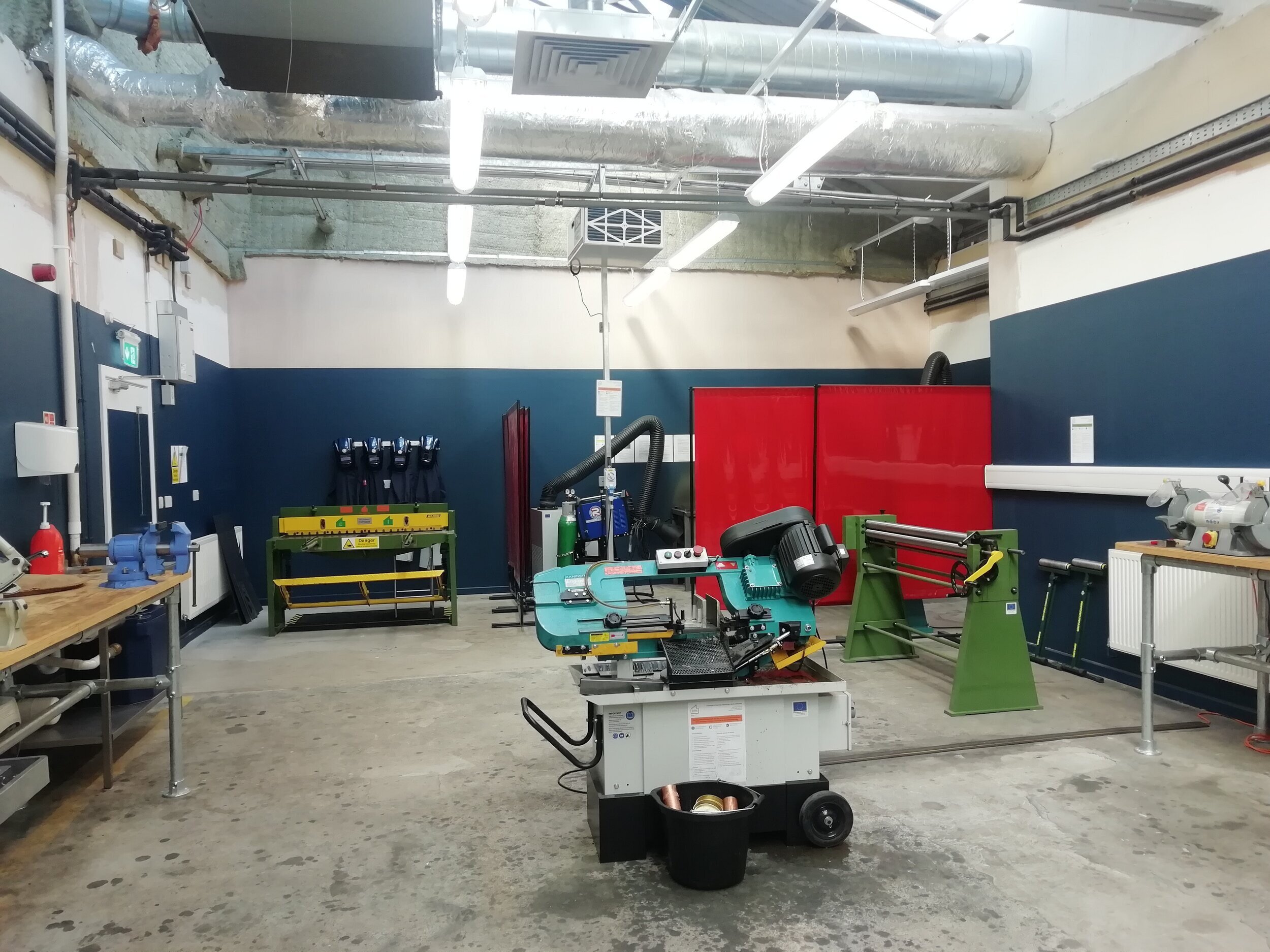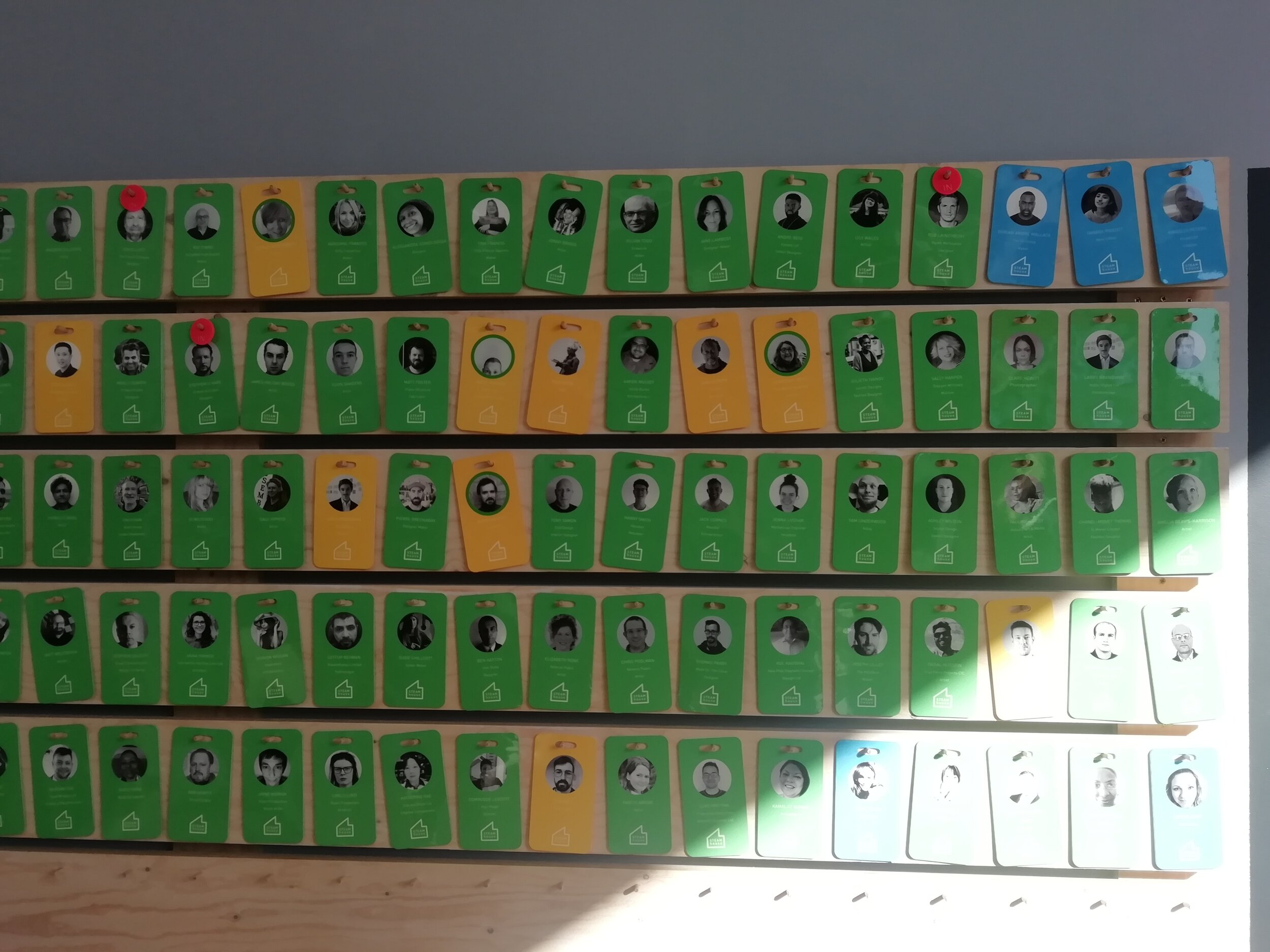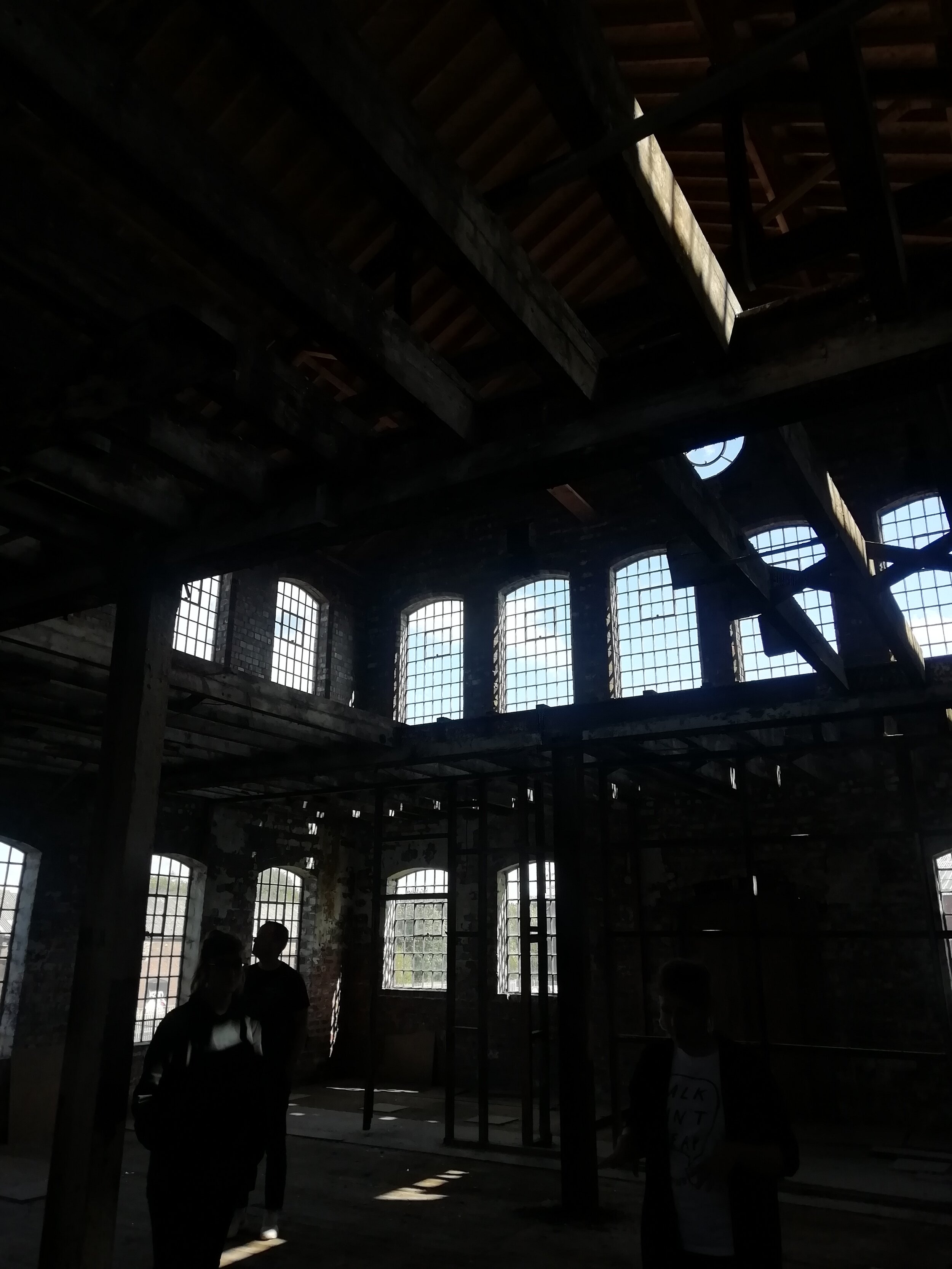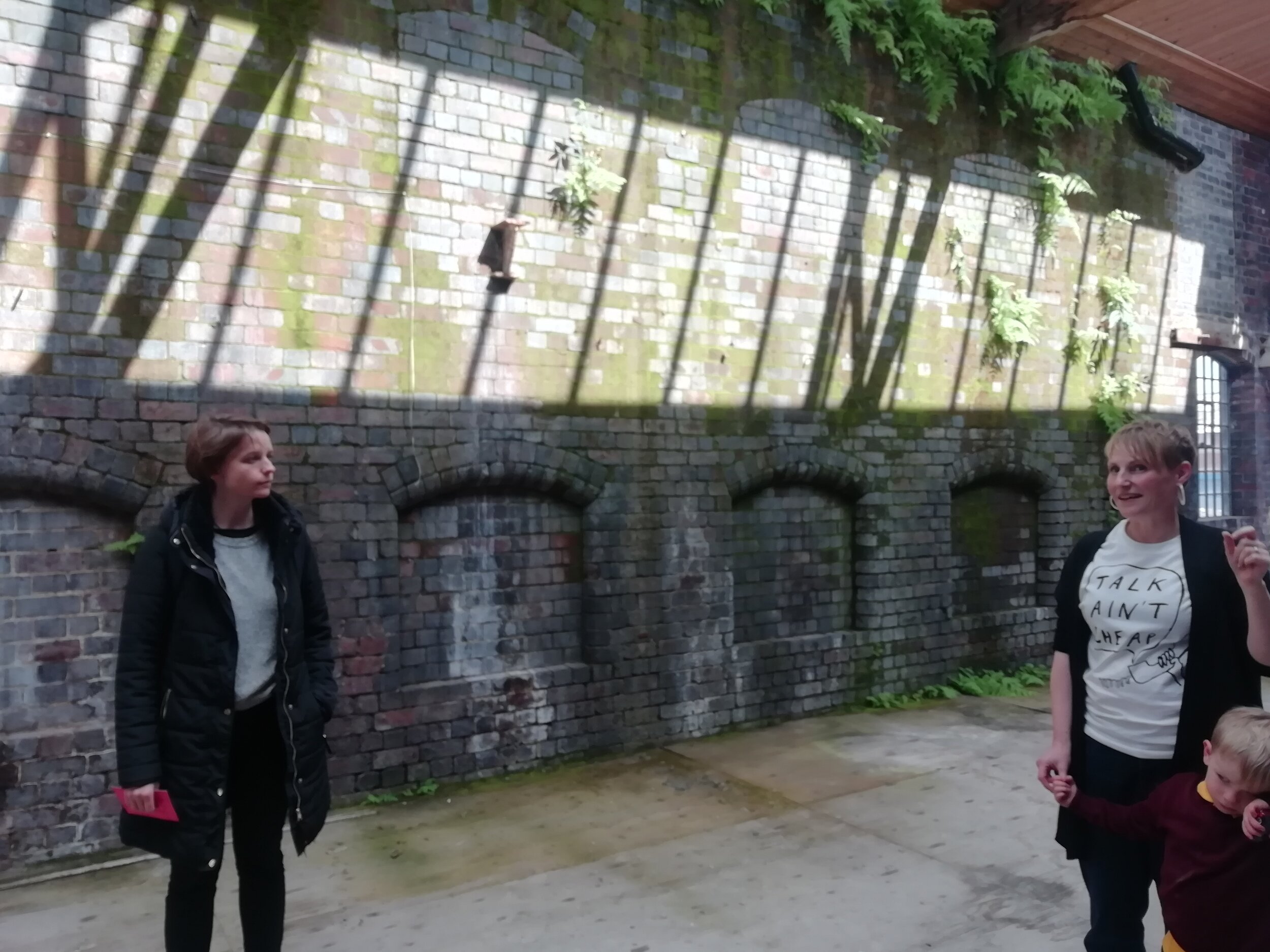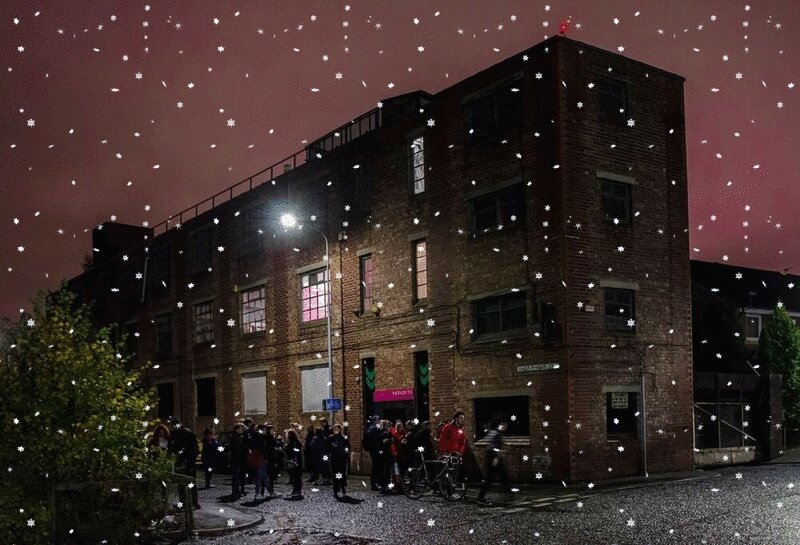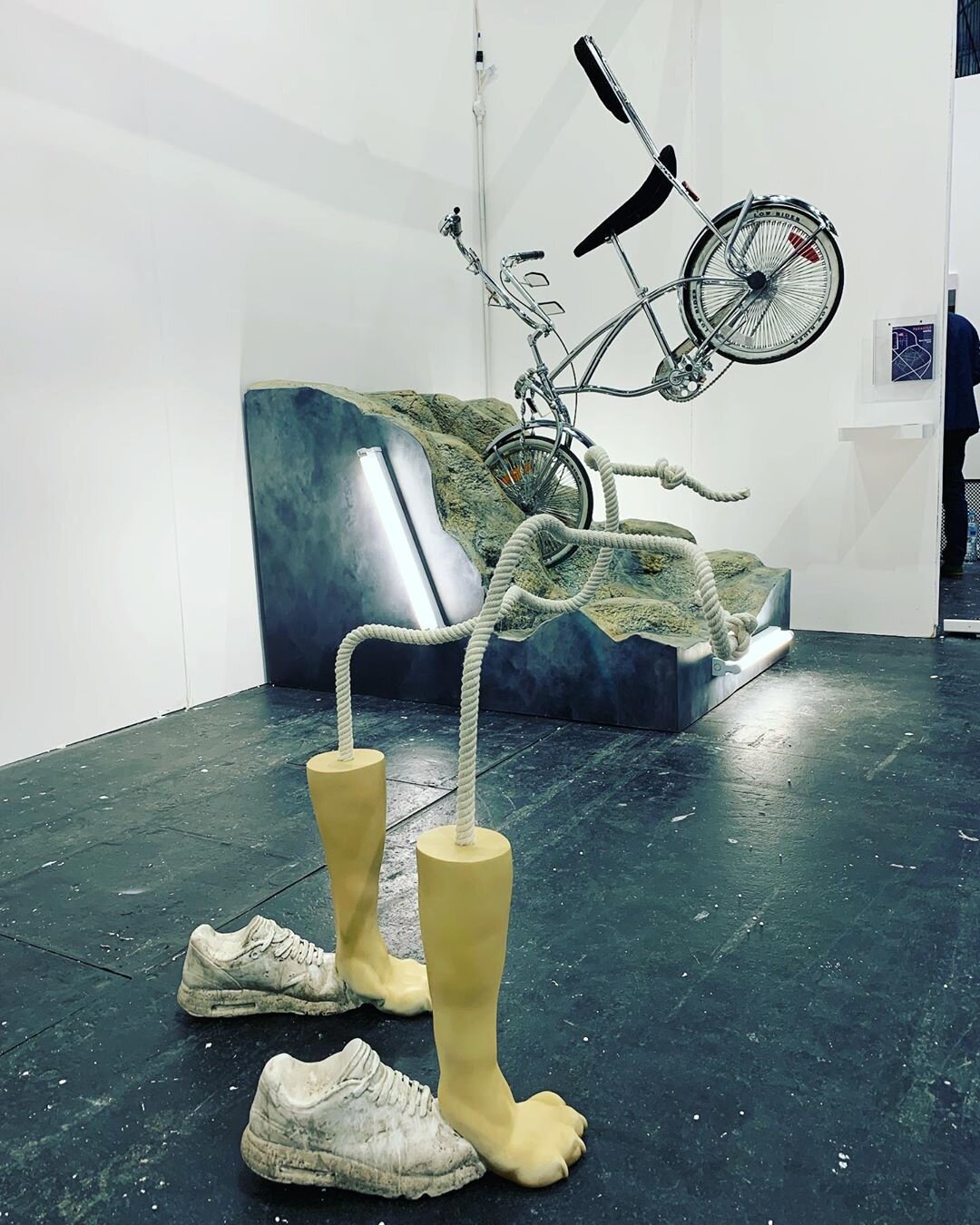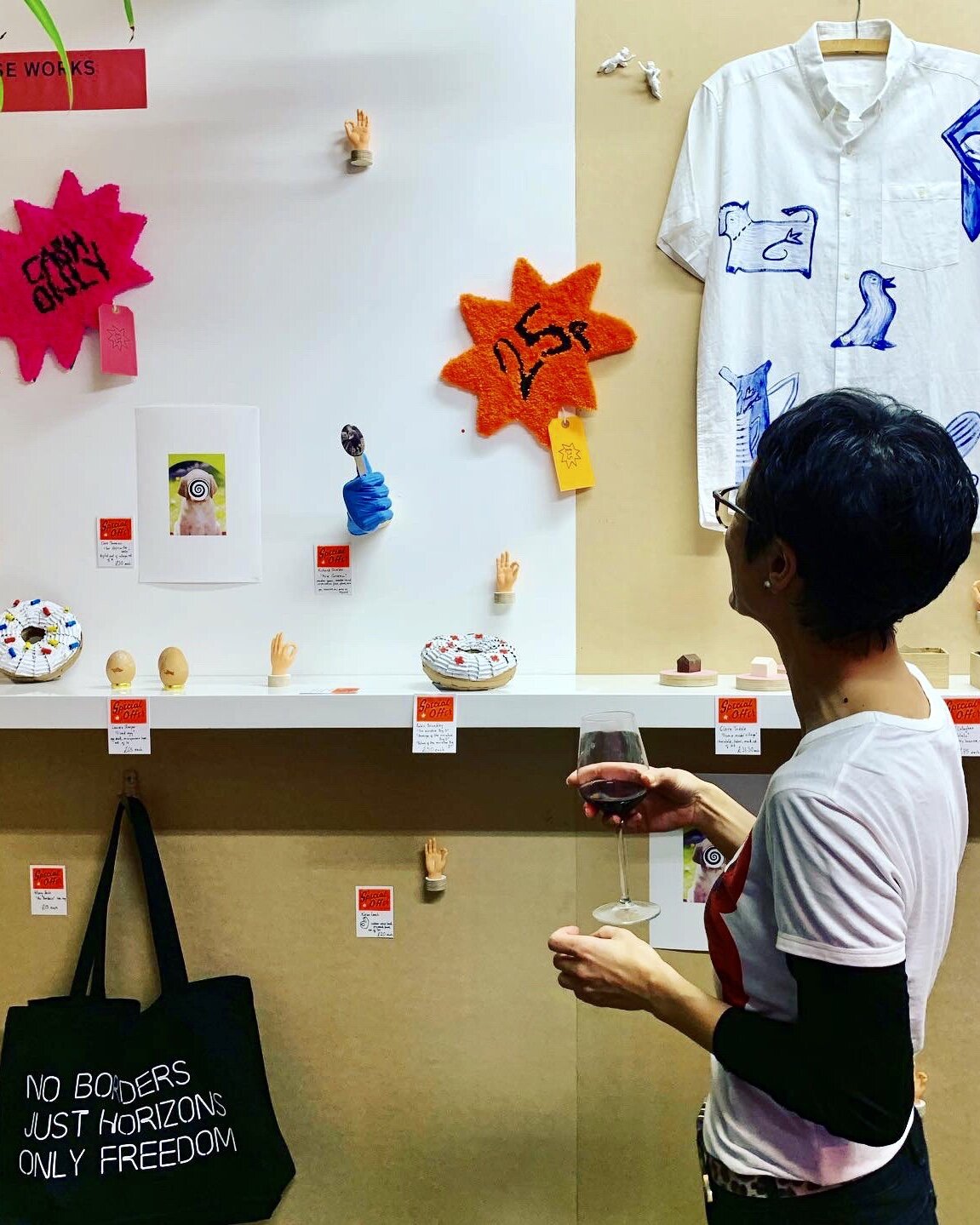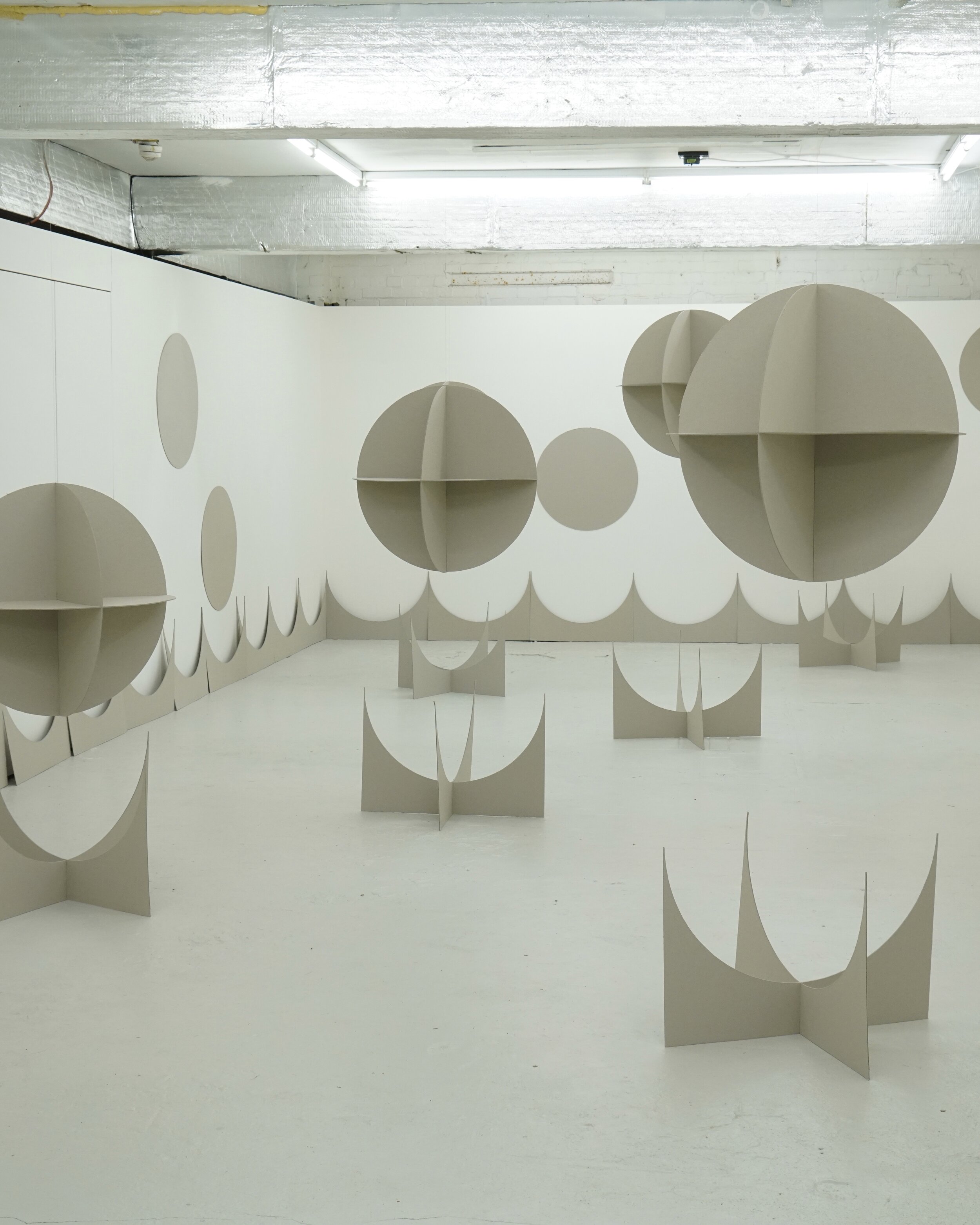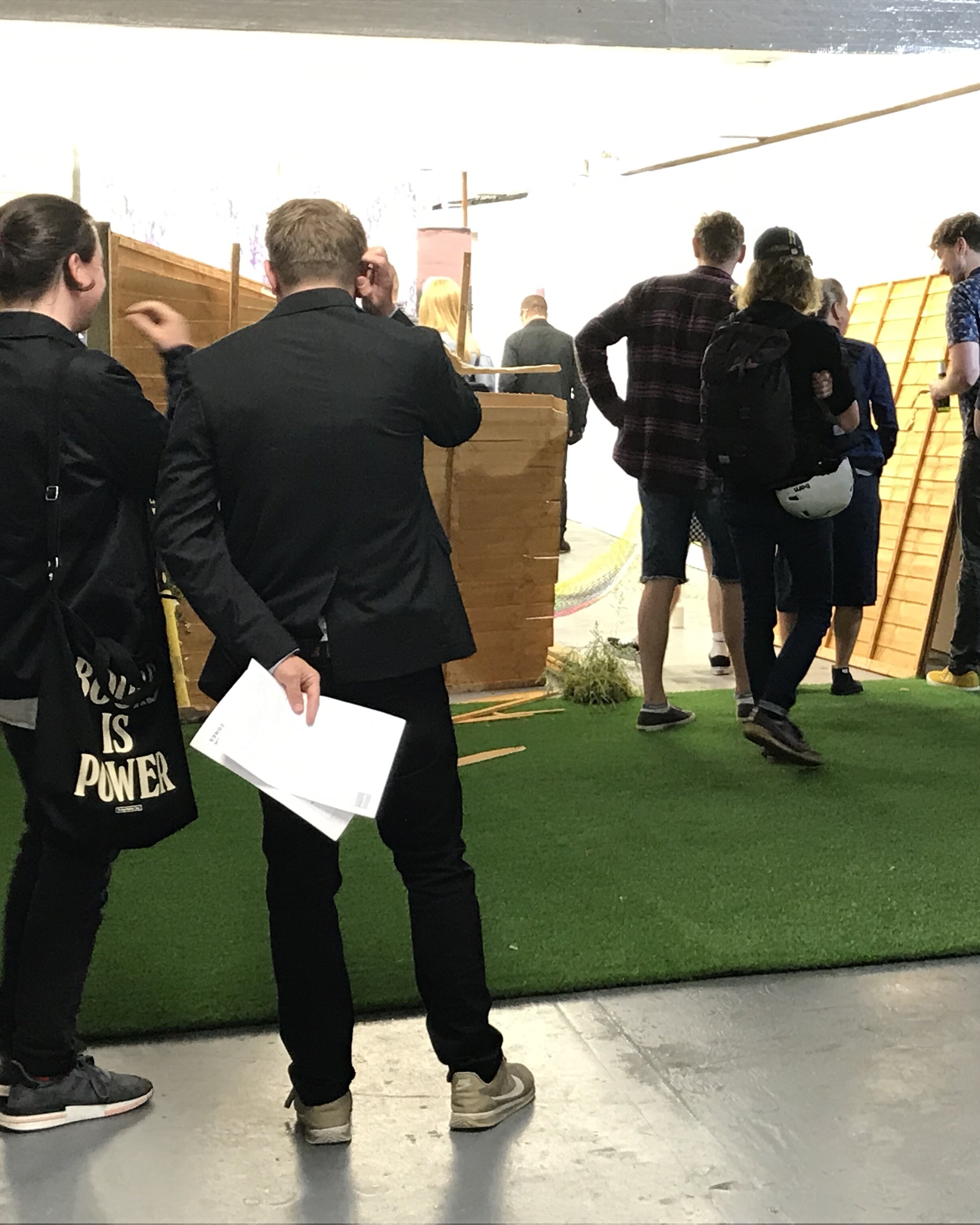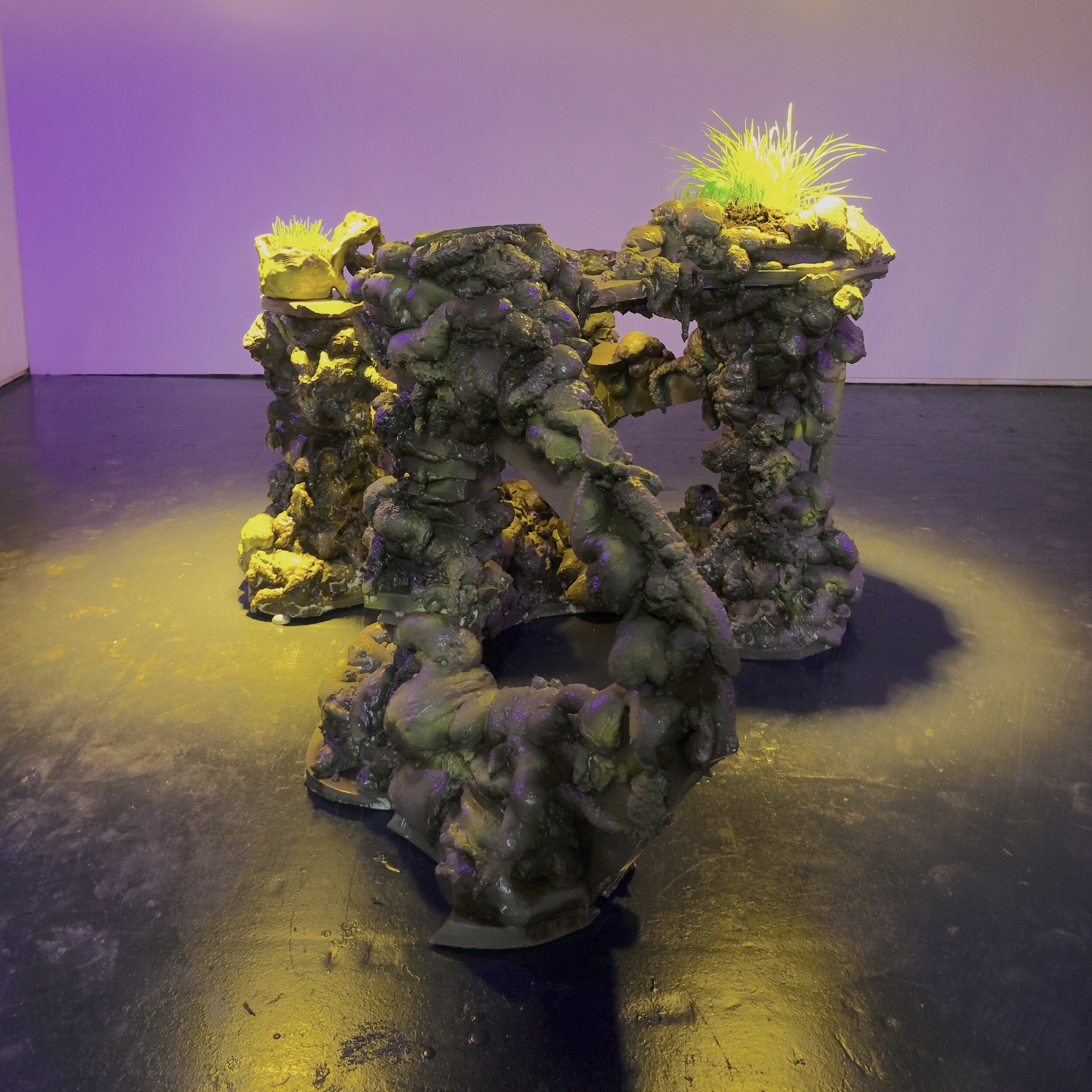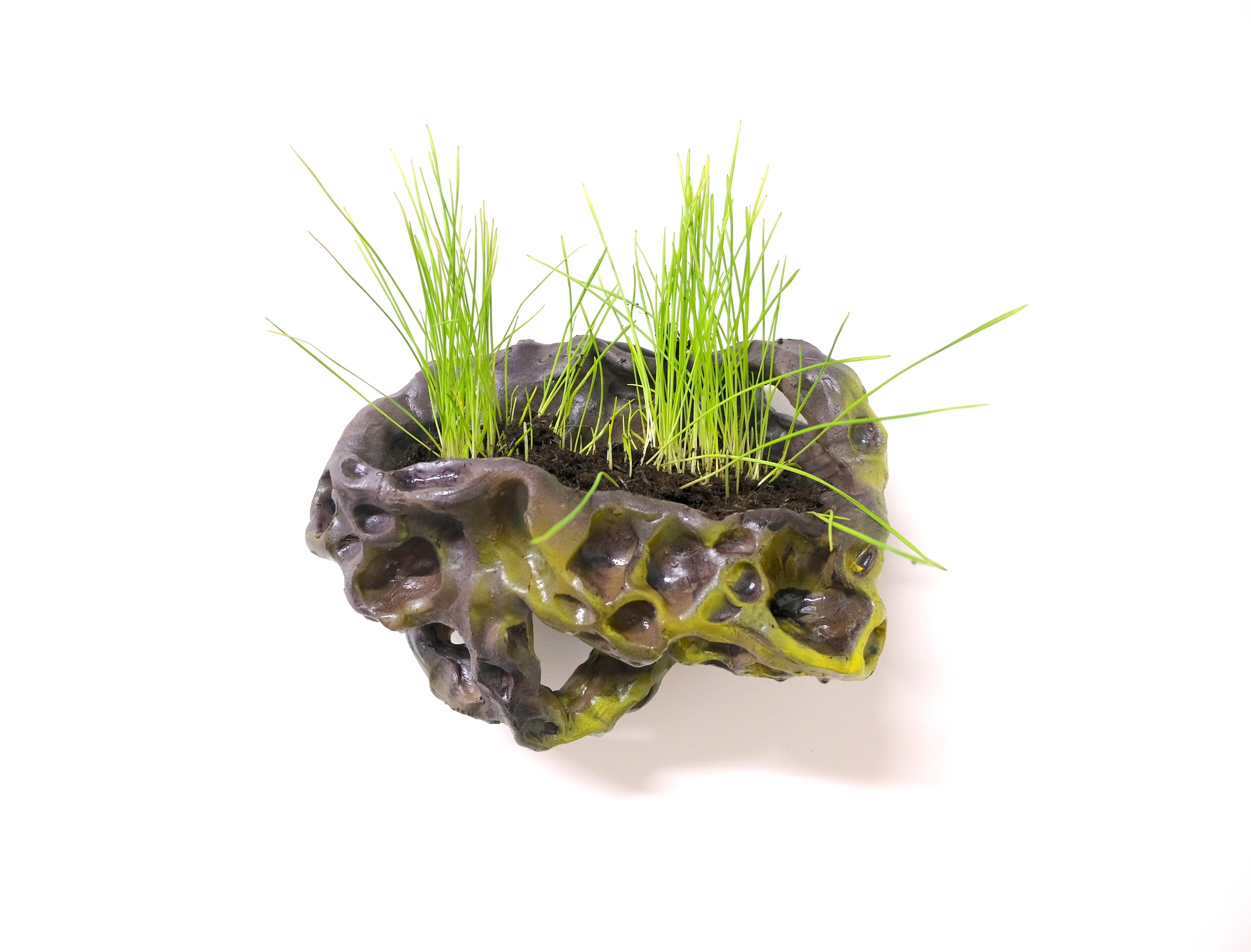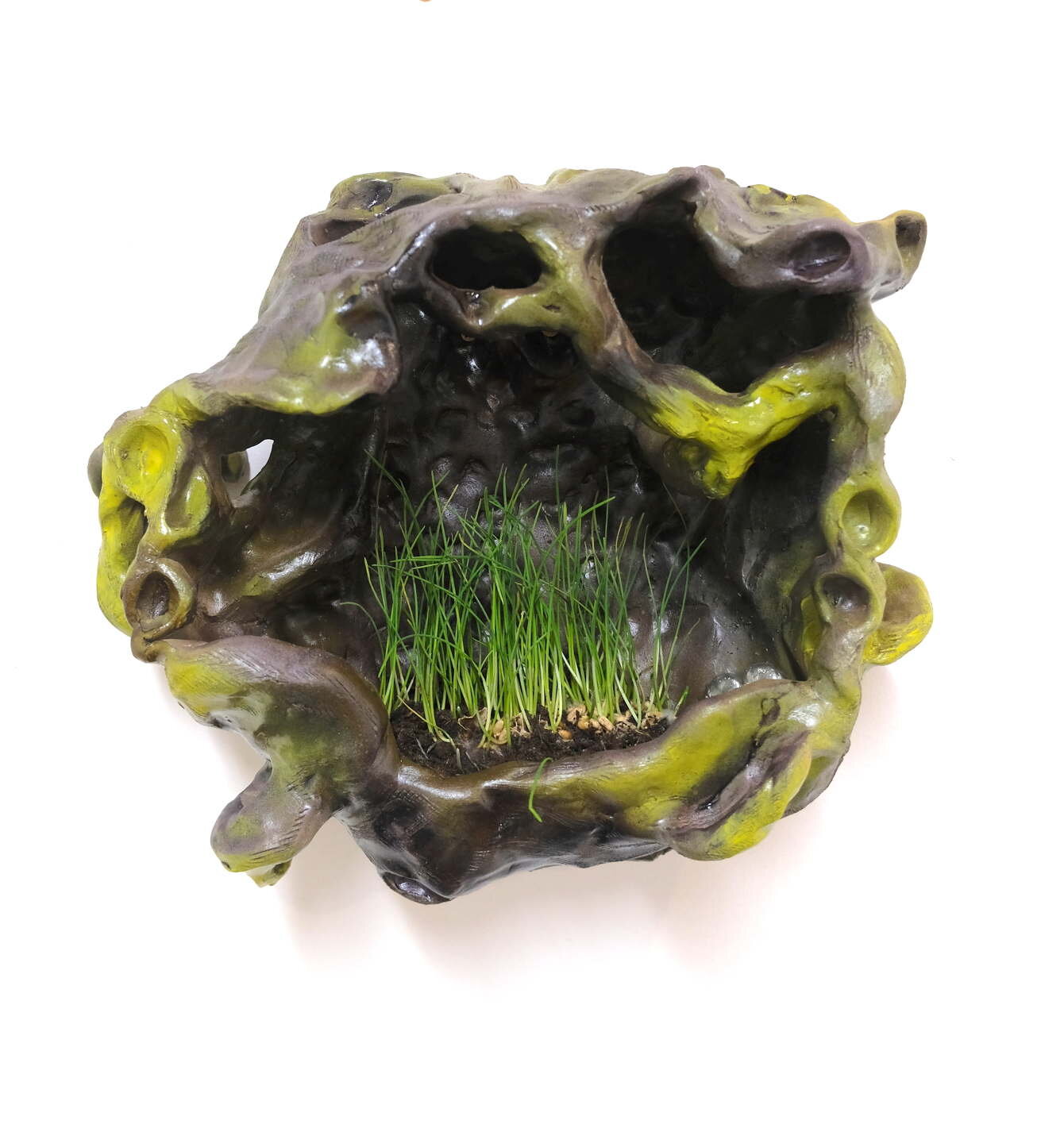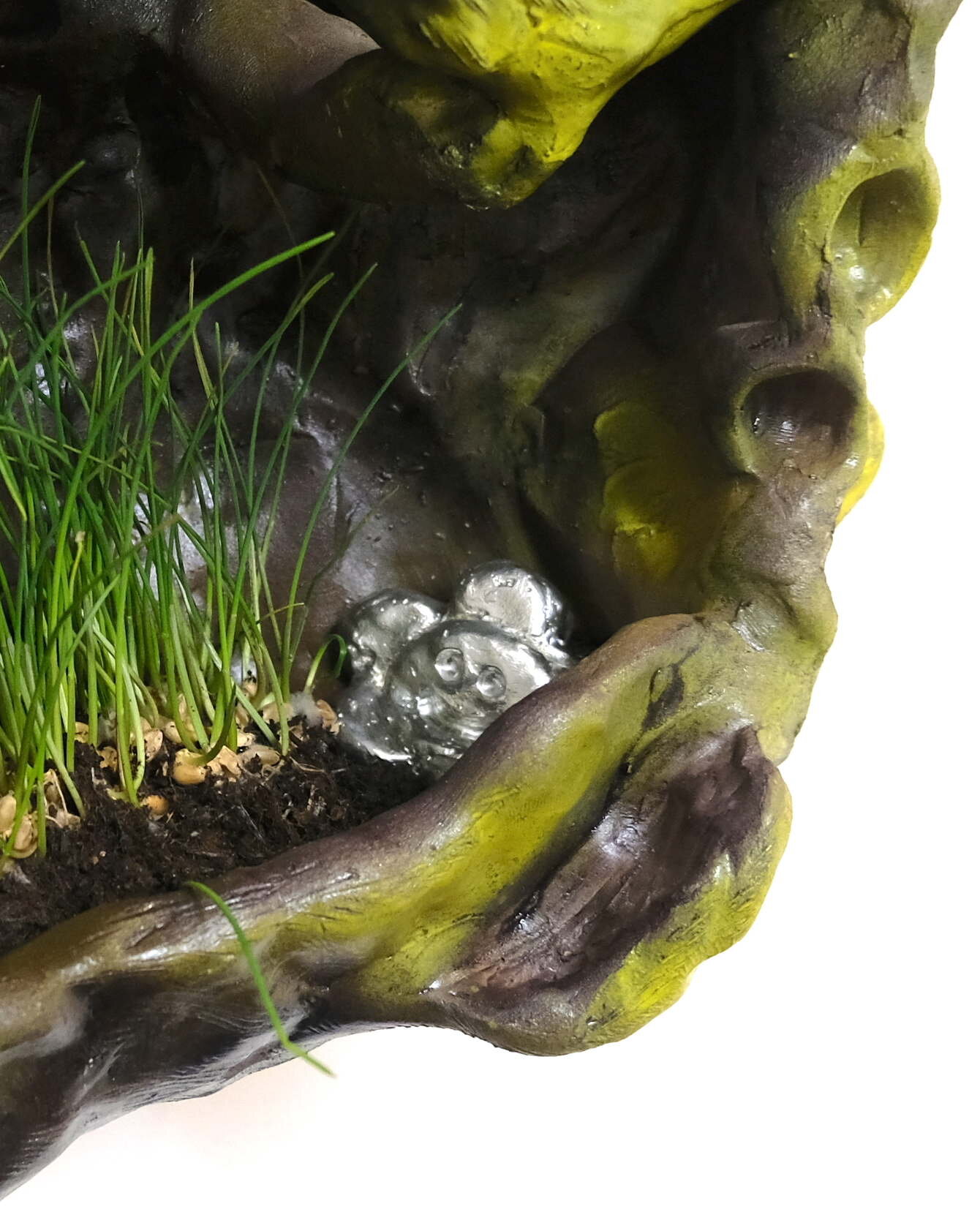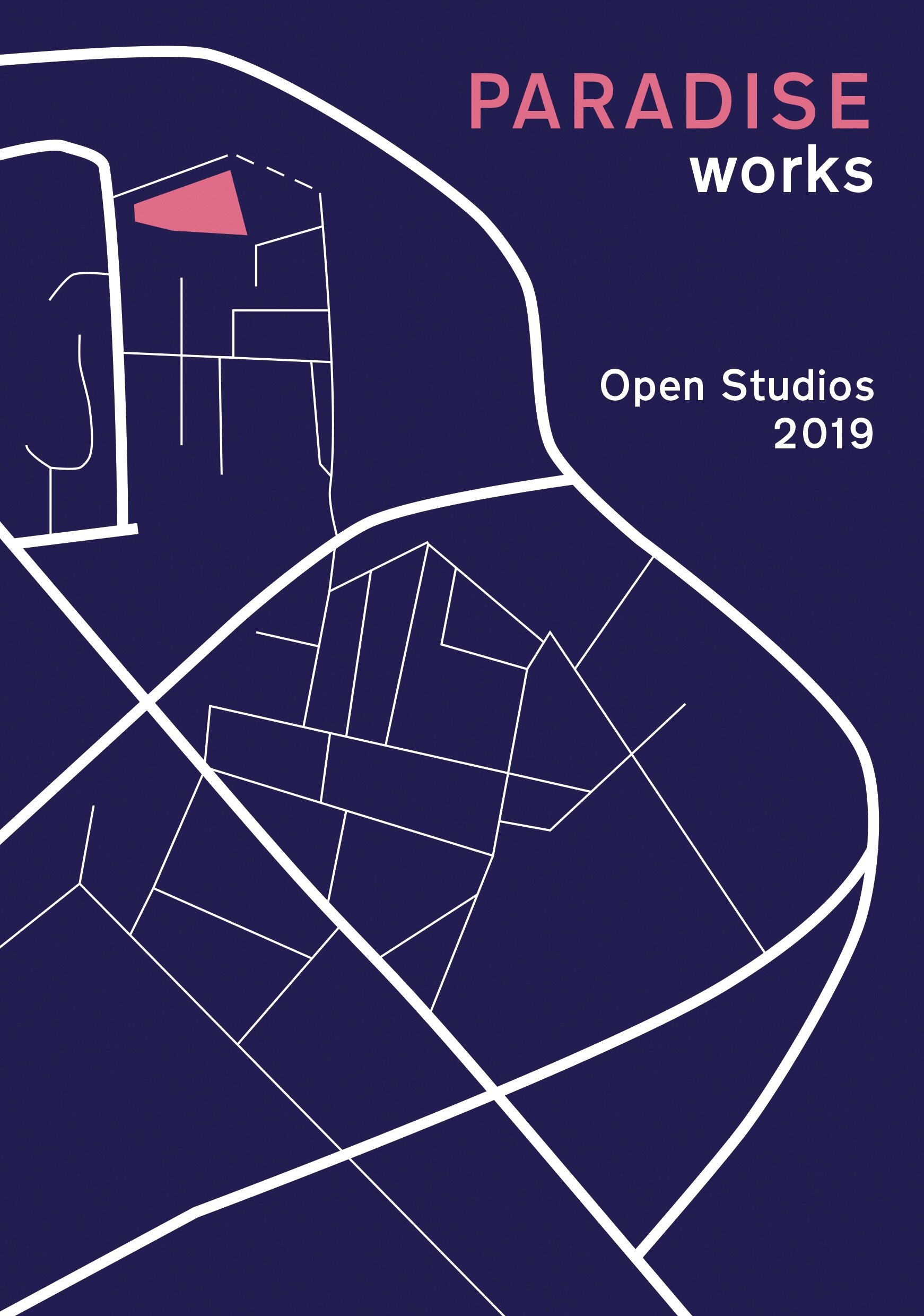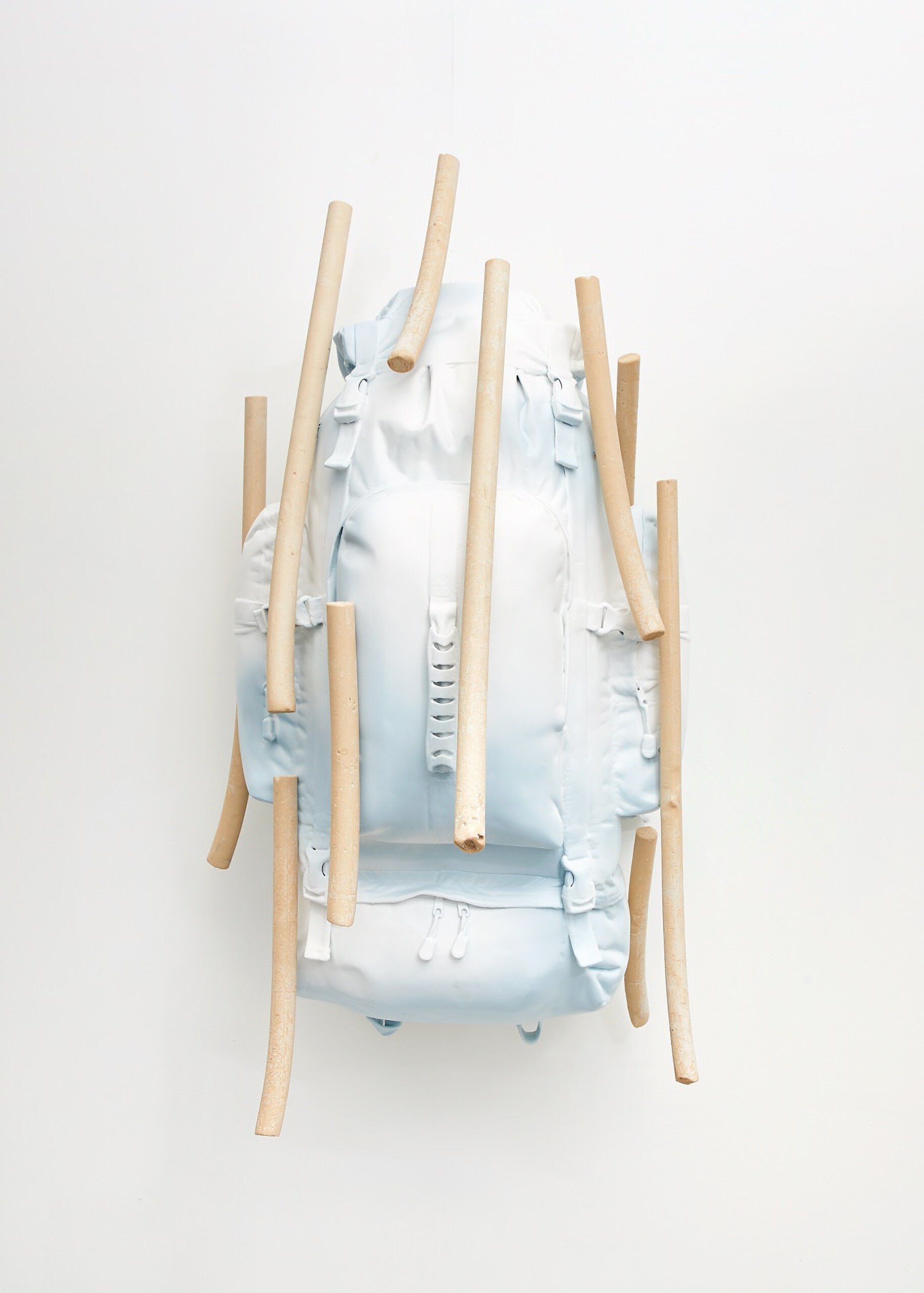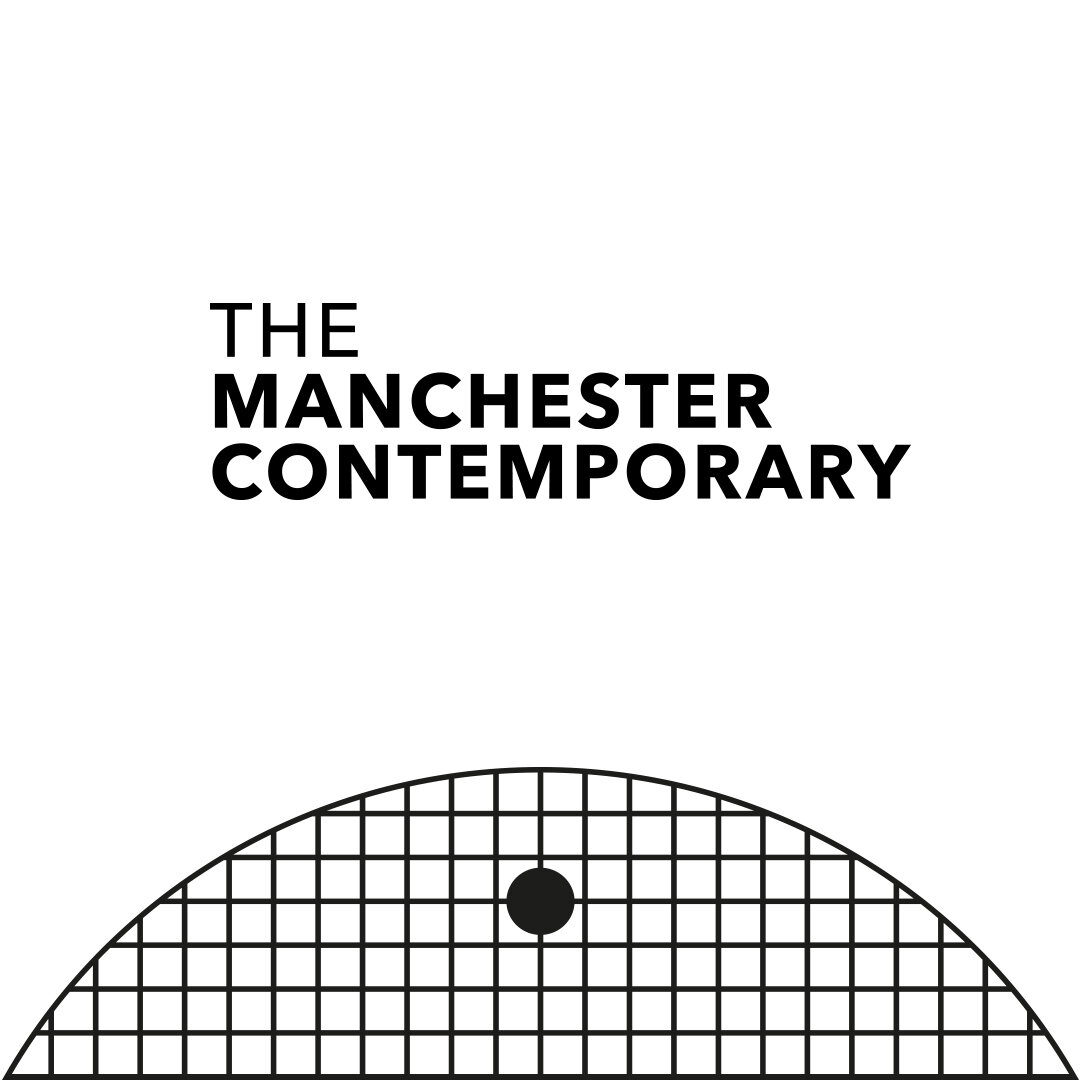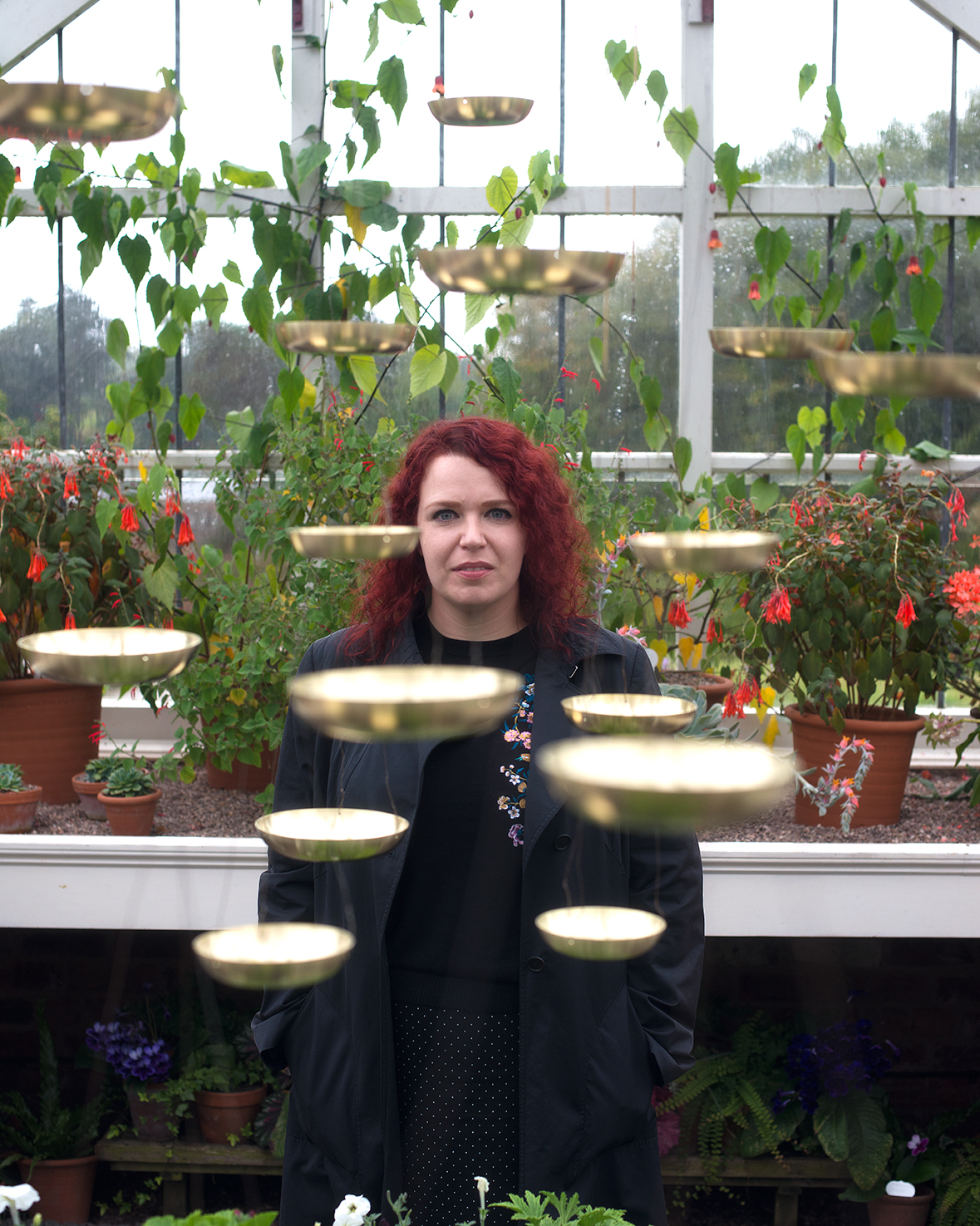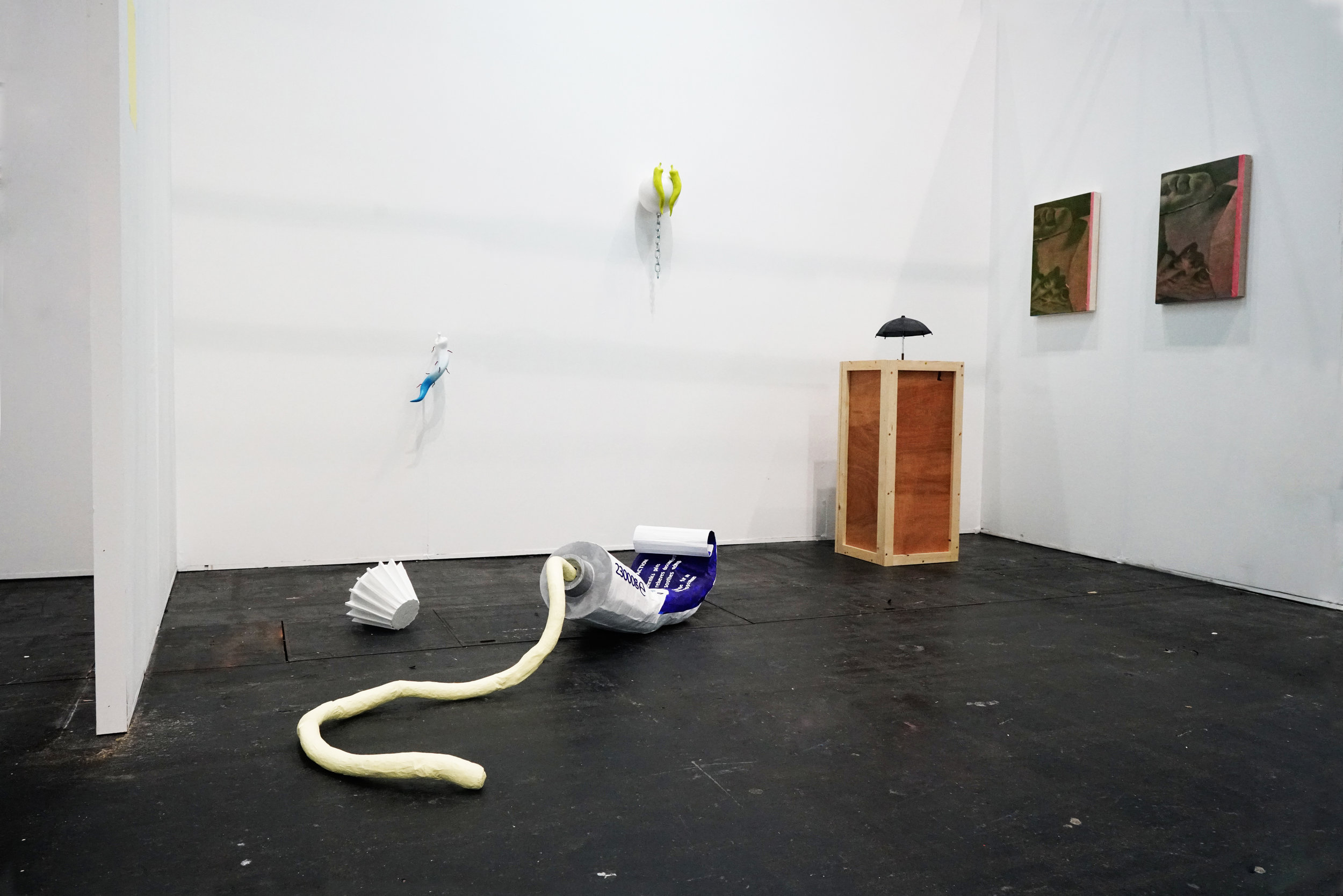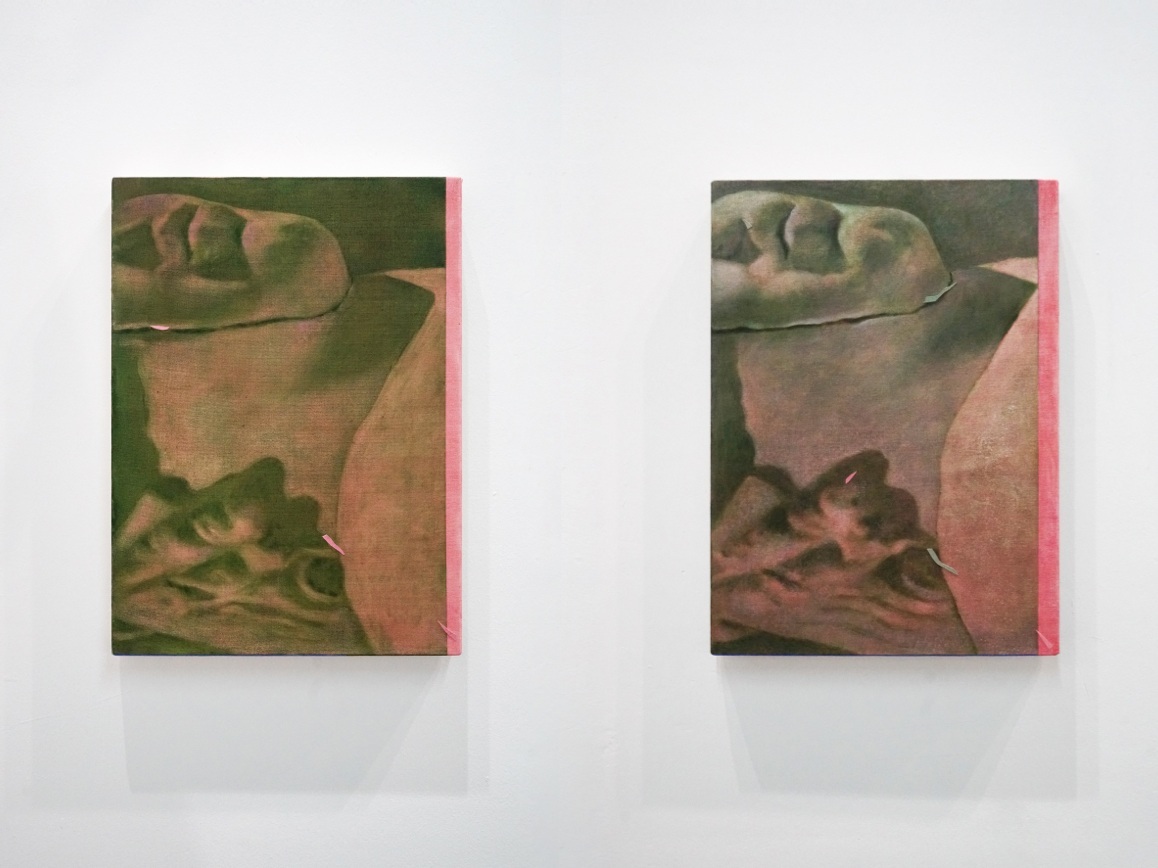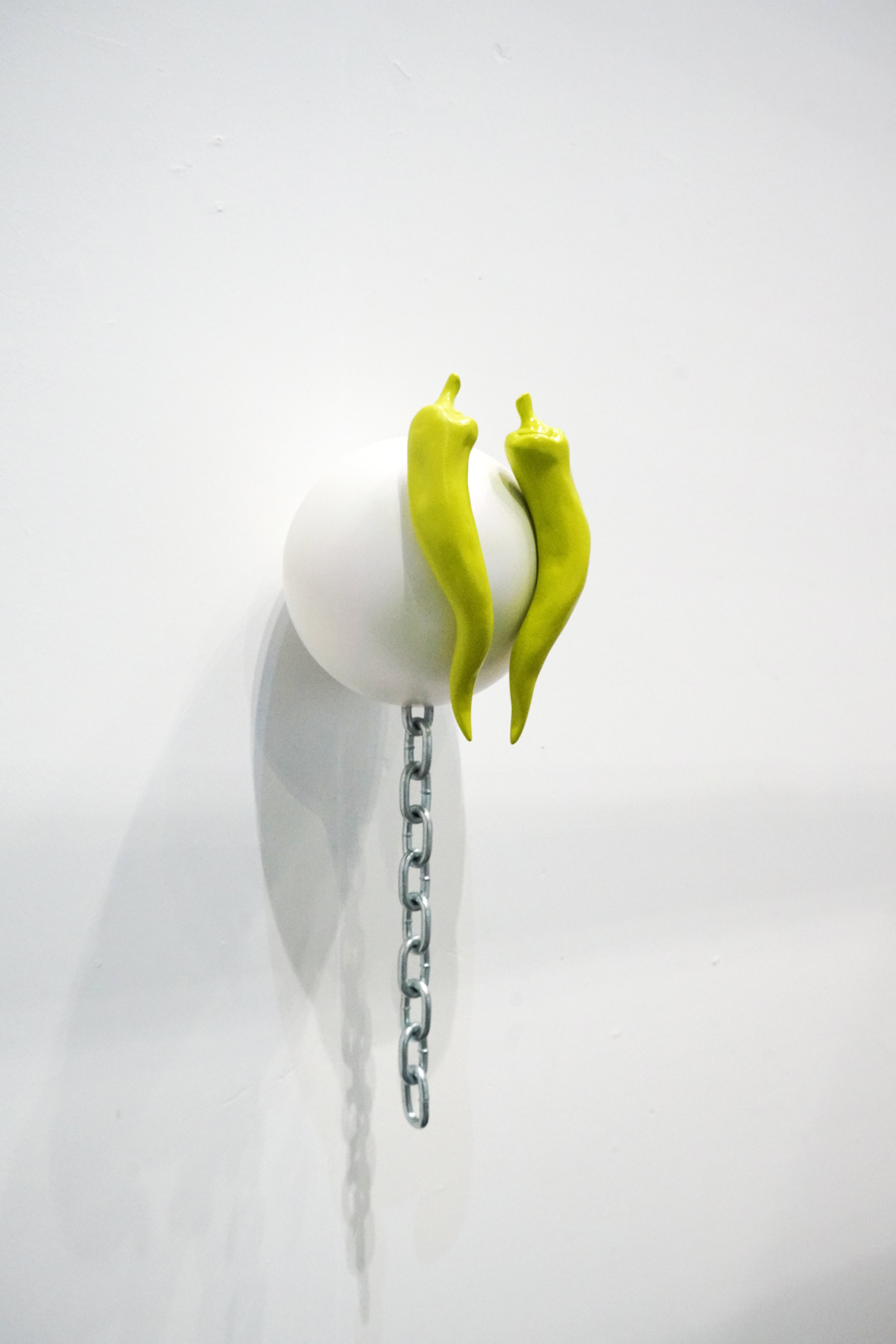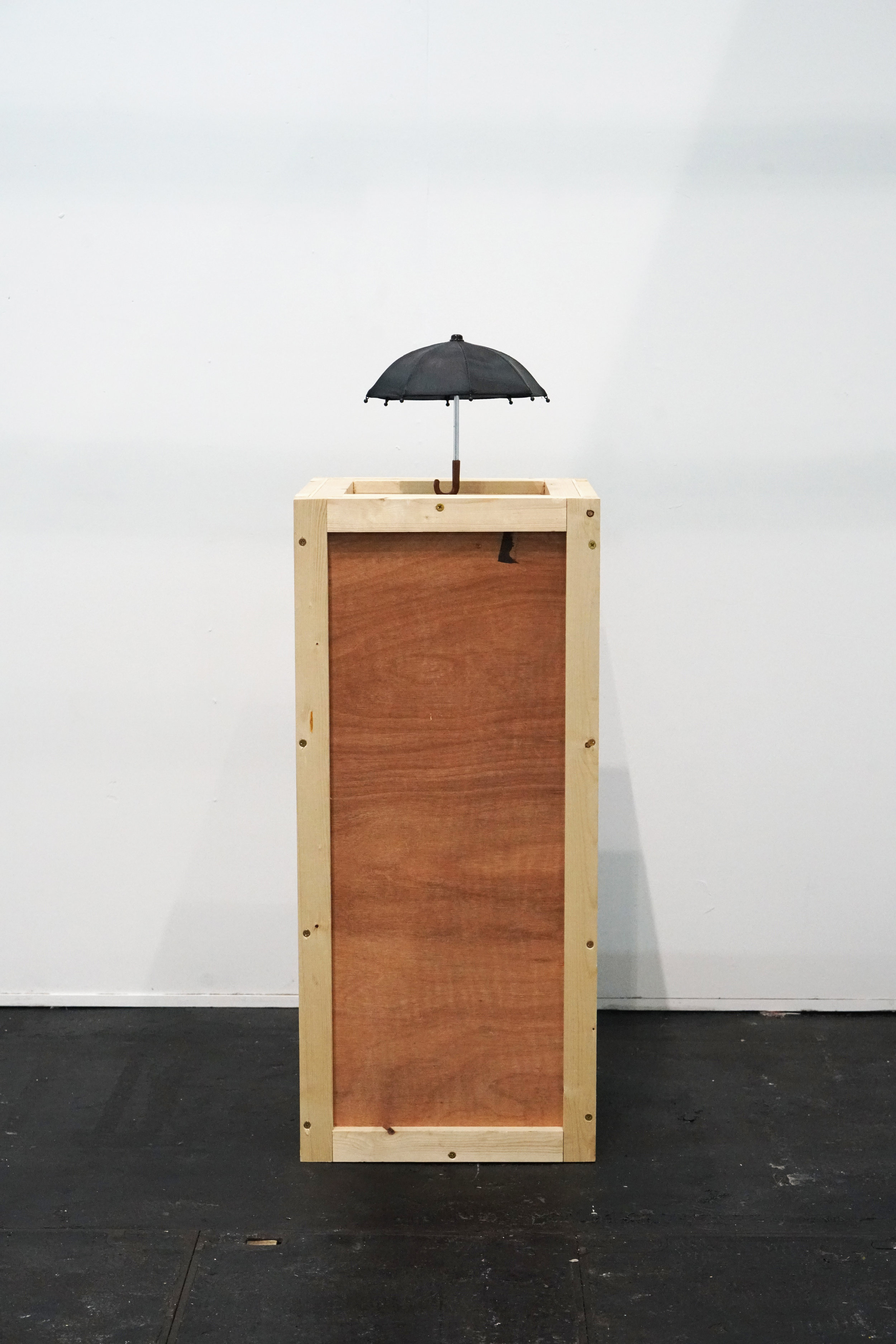Bridgewater Community Garden
Paradise Works artist James Ackerley has collaborated with our neighbours to create an artwork for the Bridgewater Community Garden, a reclaimed green space opposite Paradise Works in Irwell Riverside. Working with neighbours and students from Salford College as part of their Princes Trust award, James designed and made the sign, planter and noticeboard to celebrate the hard work of local residents turning the overgrown site into a place where people can connect with nature and, once we are past social distancing, gather for community events.
The artwork follows on from creative activities with local residents led by PW artists Lucy Harvey, James Ackerley, Maisie Pritchard and Naomi Tattum in Autumn 2019. You can find out more about the Bridgewater Community Garden and get involved here. We caught up with James to hear about his work and how the project developed…
James, can you tell us a bit more about this?
The artwork evolved through conversations and workshops with neighbours, young people from Salford College as part of their Princes Trust volunteering and garden volunteers. Initially the Project was set up voluntarily by local residents around Bridgewater Street near the River Irwell and their activities were focused on reclaiming a patch of land, so it could be used by the community to grow, host workshops and events. I think what they’re doing is really important because there’s limited access to communal green spaces in that area – so having this kind of space is vital for the preservation and development of their community.
I wanted the workshops to be creative and engaging but also an activity that could be applied in the real world. By introducing the participants to new skills, materials and processes I hope they can develop and use them in future. Running the workshop with young people from Salford College / Princes Trust was a learning curve, especially since I had limited experience in workshop delivery. Lucy and Naomi supported me with planning and project management and PW artist Maisie Pritchard was also on hand to help host the workshops. I’m really happy with the result and we’ve received a lot of praise from the Community Garden members which is very humbling.
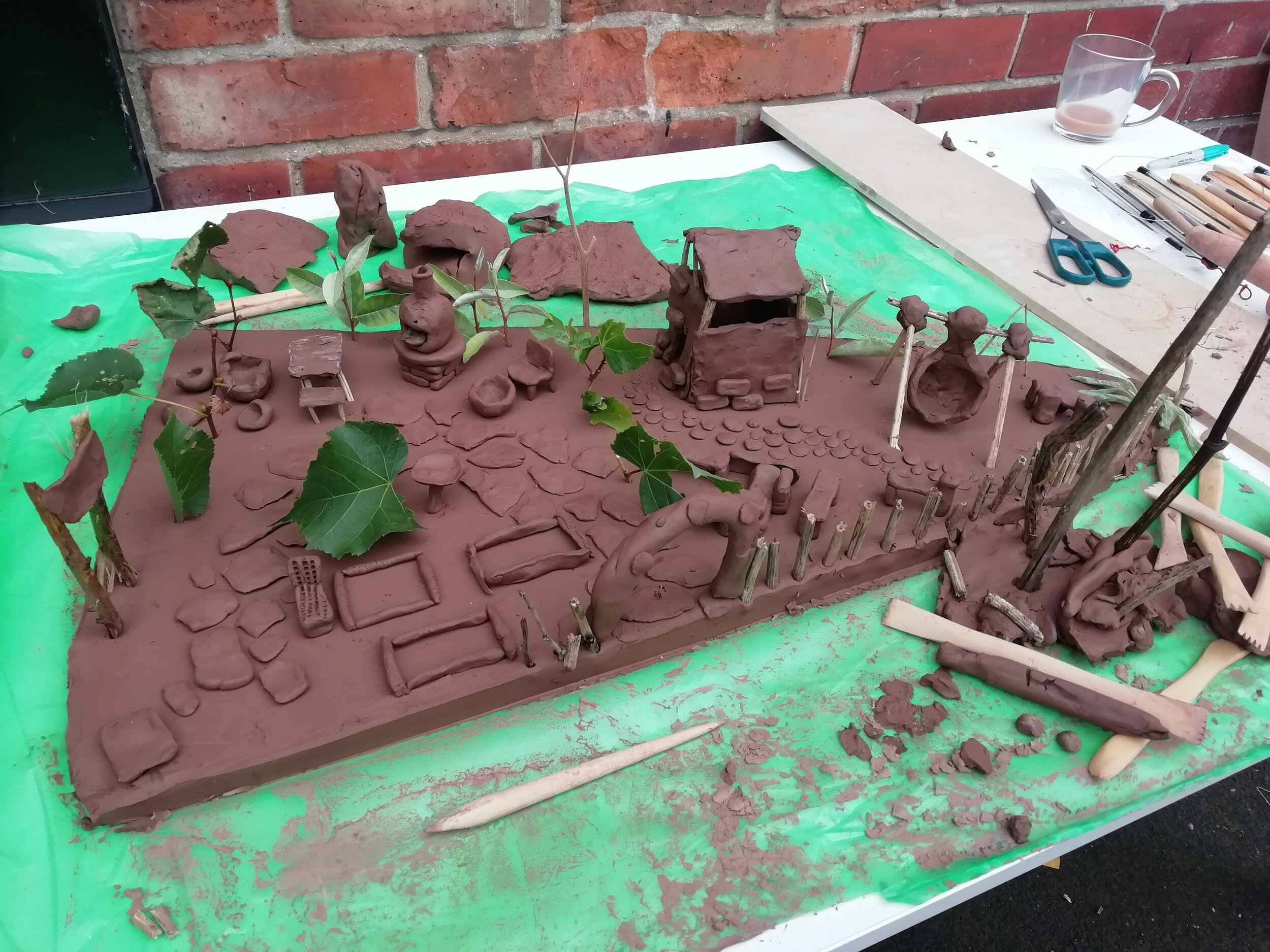
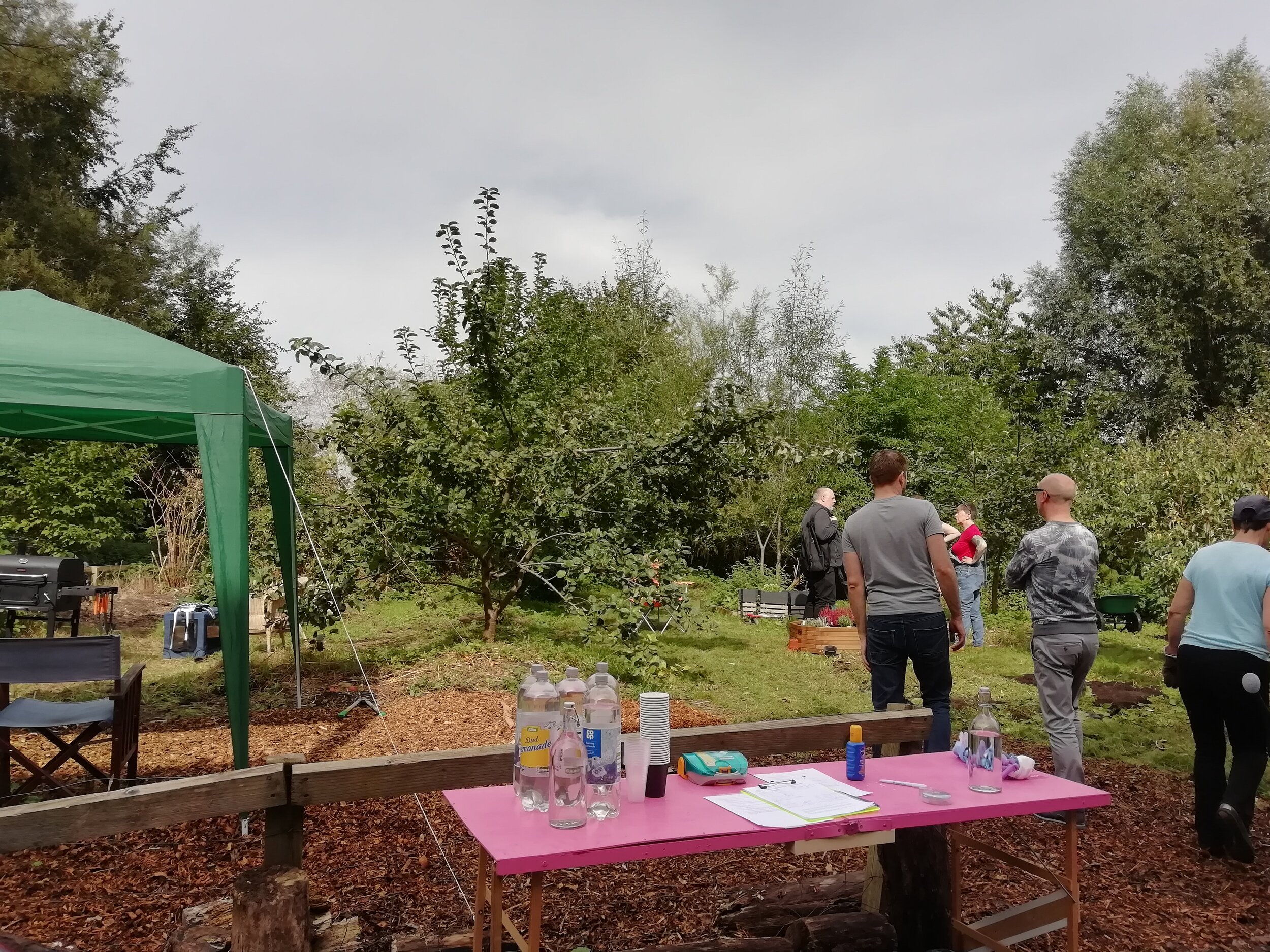

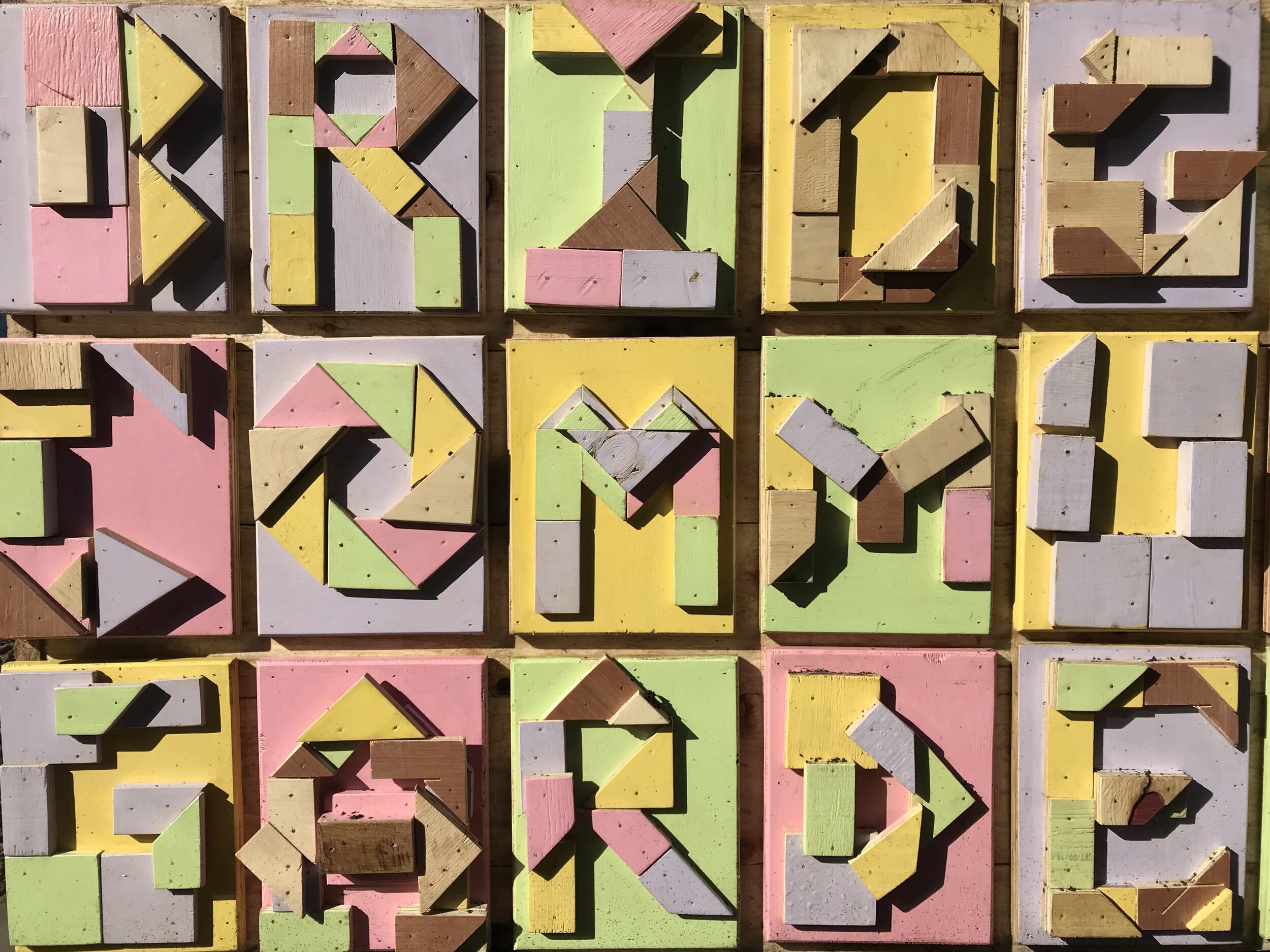
How would you describe your practice?
I try to be as receptive as possible, a lot of the work I make is responsive to a need, or problem that I might be dealing with. For example, when I had a small temporary studio I made small scale, modular sculptures, using cheap, leftover materials which acted as prototypes for larger future works. These works formed the bedrock of my practice, and concepts like resourcefulness, adaptability and practicality still inform my practice today. At the minute I’m thinking about how art can be useful in everyday life, so I’m making things that people can use, like furniture. I also run workshops as I’m more interested in process and materials rather than finished ‘outcome’. Through these workshops I want to pass that knowledge and experience onto others. I really like Enzo Mari’s writings – about how learning to make the objects we use everyday not only enriches our lives, but can have positive repercussions on our wider social and political autonomy.
What are your thoughts on socially engaged art practice?
I’m by no means an expert, but I’m learning something new with each project. A lot of the things I’m hoping to achieve with my work fall under socially engaged art. Recently I’ve been thinking about how my work engages people and how my ideas and creations can be passed onto others. I want my work to have a real physical impact on people’s lives, outside of the purely aesthetic or academic. Workshops and community projects like the Bridgewater Community Garden encourage collaboration and discourse between individuals and strengthens communities. It’s a very diplomatic process; as an artist it encourages me to question who my work is for and how useful it is.
Local residents and PW artists, Bridgewater Community Garden, September 2019.





